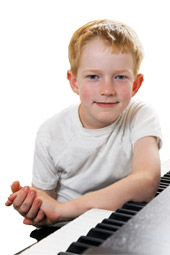How music can influence the behavior of children?
Music is a natural way to capture the attention and imagination of a children. It has a huge impact of kid’s body and mind. Dancing, listening and playing to a beat can shift a kid’s mood and also helps him to corporate and express his emotions. Simply we can say that music leads to feelings which automatically leads to behavior. Sometime kids show bad behavior and sometime good. It depend on the mood and experience of music in context of entertainment. Kids are smart enough to enjoy music without transferring the emotional effects to their family and relationships. Even they does not necessary affect how young people act in actual life.
www.fortemusic.com.au play an important role in the socialization of children and youngsters. No doubt, music provides entertainment and distraction from problems and serve as a way to relieve tension and boredom in lives. There are many behavioral benefits of music for your children. First you should encourage your child to listen and play music as soon as possible. Children can start by listening music by their favorite songs and accompanying the music with simple handmade instruments. Then they can make music with advance instruments and perhaps even take formal lessons. Listening and playing music can help to improve children’s concentration, patient, self-confidence, coordination, self-esteem and relaxation of mind.
Music act as a source of comfort and connection for babies from birth to age. Babies love to hear the sound of human babies especially their mom’s and dad’s. Children love the familiarity of repetition. So you need to use music as a way to transition from the one part of the day to another. The age between 3 and 4, most kids will begin to take a real interest in music. Combining music with movement such as clapping, jumping, and dancing helps to improve coordination, reducing frustration level and limiting the statement that “I can’t do this”. Many singing alone games are ideal for initiating movements and bringing kids together in different enjoyable activities. This age group kids can focus a bit longer and are ready to bang on simple instruments such as a drum and piano. These things are also helps them to express emotions such as anxiety, anger and excitement and also giving them an outlet besides destructive behavior. The age group 4 to 6 is just the right time to start music lessons like piano and drum or other instruments. At this age, the kids can focus for short periods of times for one task and naturally ready to develop reasoning skills. They required practice period to learn an instrument that can teach them patient and improve their concentration. This will include their routine tasks like we can say waiting in line or learning to read with less frustration. At the end, age group 6 to 10; the school age kids start learning about the power of music for changing their moods or connecting their friends and families. In this age; rhythm, repetition and experimenting with different sounds also can be used for speech and reading development of children. Kids use favorite songs that help them to relieve boredom and relax after a stressful day and connect them with their friends.


